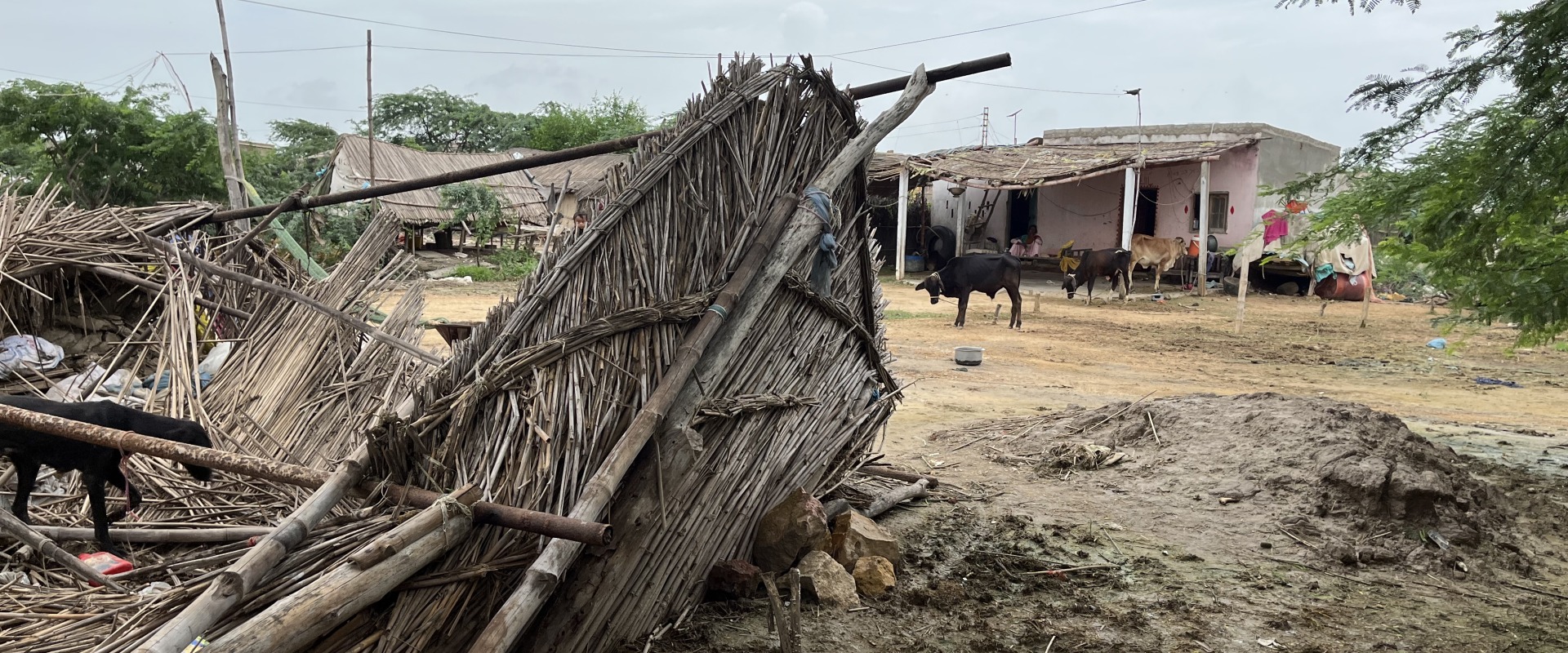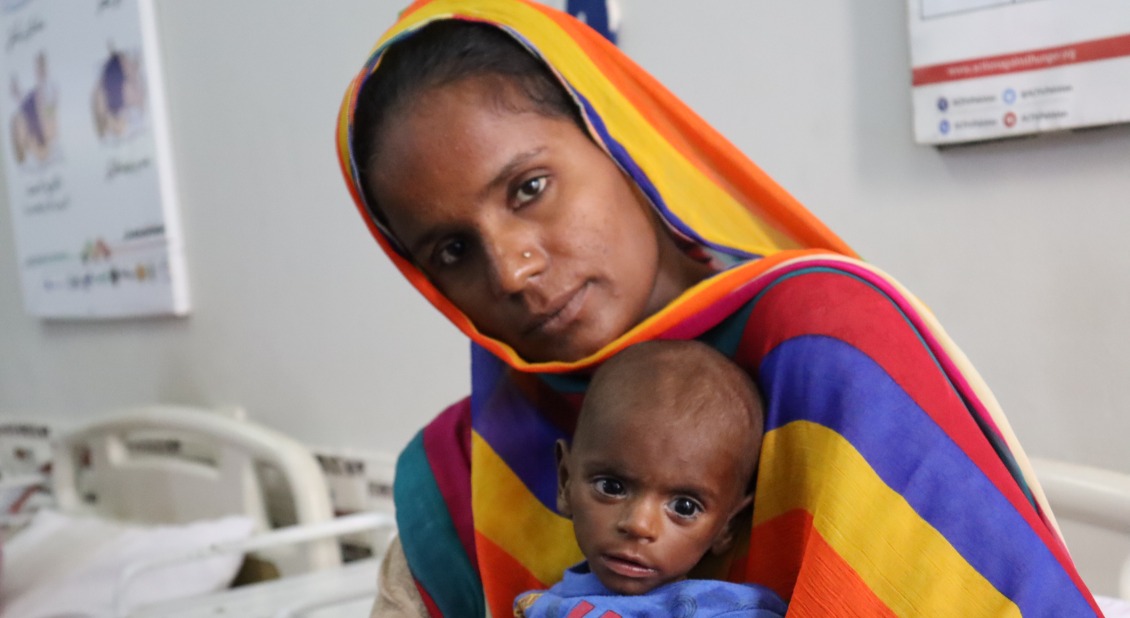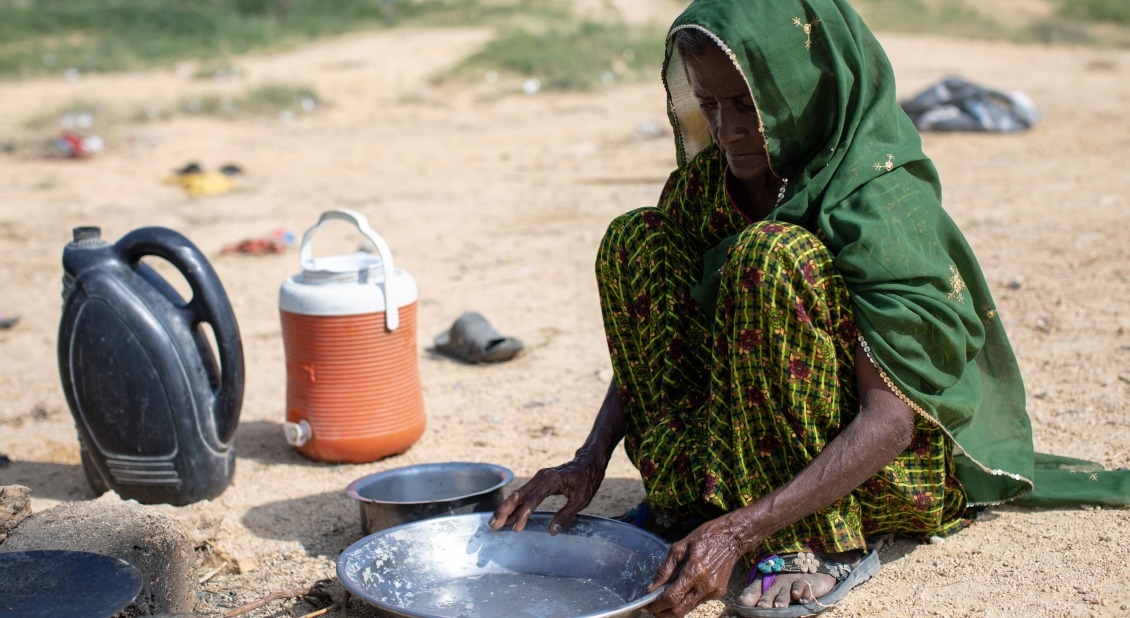
GIVE THIS RAMADAN

With the waters refusing to recede, vulnerable families face increasingly uncertain futures
Since June, Pakistan has been facing an unprecedented climatic disaster. Massive floods have swept through the nation, destroying homes, hospitals, infrastructure, and roads. Large numbers of people have been trapped, unable to leave the hardest-hit areas. The flooding has also taken more than 1,500 lives.
Pakistan faces an annual monsoon season, but due to rising global temperatures, this year’s rains and subsequent flooding have been the most devastating in the country’s history. Nearly 33 million people have already been impacted, and there is no end in sight. In the areas where flooding has been most severe, the provinces of Sindh and Balochistan, 1 in 9 children have been found to severely malnourished and in need of emergency treatment.
Damaged infrastructure, stagnant water, and inadequate sanitation facilities have made it difficult for people to access healthcare while making it easy for diseases to spread. The floods have completely or partially damaged 520 health facilities in Sindh alone, severely limiting access to services.

Action Against Hunger manages long-running health, water, sanitation, hygiene, nutrition, and food security programs in Sindh province. Our teams operate eight nutrition treatment centers in the region where severely malnourished children can receive lifesaving treatment. The center has already admitted hundreds more patients this year compared to last — people desperately seeking adequate health care and refuge from the flooding.
“We were receiving 25-30 patients a day before, but now the number has reached 45 and sometimes 55. The recent floods have contaminated the water, and there is an exponential increase in cases related to diarrhea and vomiting in our clinic,” says Ghulam Rasool, head of one of our nutrition treatment centers in Sindh.
Though the rains are less intense than they were a few months ago, the flood waters have yet to recede in southern Pakistan. Stagnant water has created breeding grounds for mosquitoes, resulting in malaria outbreaks in 32 districts across the country. Malaria can be fatal, especially for children, if not treated.
Our teams are responding to this health crisis and have distributed hundreds of emergency kits in the Badin and Thatta districts in Sindh, each containing a jerry can, water container, soaps, water purification tablets, and mosquito nets. But although our staff are on the ground, treating hundreds of cases, there is still much work to be done.
“In the village, water has accumulated after the rains and has increased the number of mosquitoes. They cause disease…many children and adults have contracted malaria,” says Laila, a woman who lives in Aage din Gah village in Sindh.
Farmers and rural communities are among the people hardest hit by the floods. The UN’s Food and Agriculture Organization estimates that as many as 9.4 million acres of crops in Pakistan– including staples such as cotton, sugarcane, vegetables, fodder for livestock, and orchards – were destroyed by floods in August.
Farmers throughout the country had already been facing an uphill battle. For many years, rising sea levels have contributed to increasingly high saline levels in the soil, making it difficult for crops to flourish. Now, with water flooding their agricultural lands, they are unable to plant crops at all. Additionally, one million livestock were reportedly killed in the floods, depriving rural families of an important source of nutritious food and income.

Thousands of people were forced to flee their flooded communities after their homes were permanently destroyed or damaged. With nowhere to go, many internally displaced people end up in make-shift camps that have formed along the main roads on high ground. Many people have no choice but to live in temporary, shared shelters, and winter is fast approaching.
As communities face another month of flooding, they desperately cling to hope. Thousands need stable housing and access to clean water and food, but stagnant water prevents homes from being repaired or built anew — and the prospect of future harvests remains uncertain.
Action Against Hunger is working tirelessly to help people impacted by the floods in Pakistan. Since September, we have distributed 41,000 emergency kits to help in Sindh and Balochistan provinces cope. Our teams are also continuing to provide lifesaving nutrition services and to support health centers in rural areas.
With our support, these families make it through another day, but thousands of others don’t share the same fate. Unless the consequences of climate change are addressed, and emergency responses are funded, people in Pakistan will continue to face crises.
Join our community of supporters passionate about ending world hunger.